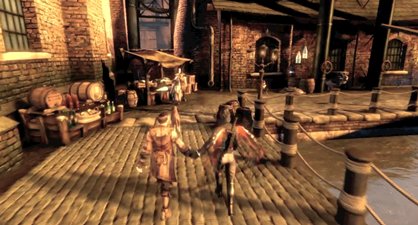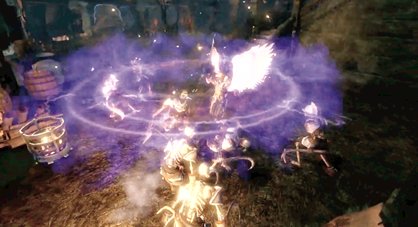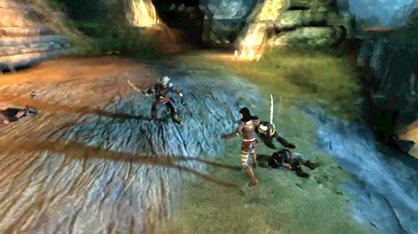Fable III developer interview
We get hyperbolic with Peter Molyneux about removing XP from RPGs
Is removing health and leveling removing the RPG from Fable?
I’m not sure I would personally call Fable an RPG. I mean it’s certainly not a 1990s RPG, for sure. In a way you could look at it as an action-adventure, you know – there’s a lot of drama, there’s a lot of story, there’s a lot of emotion in there, but we’re leveling up. And you know, I love that leveling up mechanic; I love RPGs and I love seeing myself and my hero grow and get more powerful, but a lot of the leveling up is just a number at the end of the day. Your leveling up is usually just spending that experience in the equivalent of a DOS screen. You absolutely level up in Fable III... but it’s just different.

I really thought about why you just get experience for combat; it seemed wrong somehow. This game is about expressions and getting married, and doing other things in the world should be as important as fighting. As soon as we said the world ‘Followers’ – just saying the word ‘Followers’... what people think of you means more to the entirety of the game.
How much of Fable III is going to be defined by your Followers and the choices you make?
Everything you do in the game, including what you wear, including the way you fight, including Touch and Expressions can gain and lose you Followers. So for example, if I marry someone in the game, and that was the daughter of someone significant – say, the Mayor of the town – I get more Followers. The more Followers I have, the more powerful I am. Once you get a certain number of Followers you can lead the revolution to takeover. And once you’re King the more Followers you have, the more power you have. So it all flows into one big pot.

And Touch really does change everything. Ever since I played Ico, it was lodged in my mind. It was such an important game for me; an emotional game. In Fable and Fable II and a lot of other games you’re presented with choices – whether you’re going to save someone or not save someone – but in Fable III you have to physically drag someone to their fate and it really does emotionally change it. It’s especially true when – and this is telling you more than I should be telling you anyway – you’re going to execute someone. We make sure there’s enough space between where you’re going to execute them and where you are now that I have time to make you feel just a little bit guilty about doing it.
Crumbs. You have to actually drag people to be executed?
Weekly digests, tales from the communities you love, and more
I think it’s very right that I don’t talk too much about what happens after you’re King because there are some real surprises there...

On the day of your Coronation, I definitely want you to feel supremely powerful, but then we’re not going to make life easy for you. I mean, could you point to any King or Queen or Prime Minister in history that’s had an easy life? Obama already looks like he’s aged ten years and he’s only been there a year.
This may be politically incorrect but Obama is a great inspiration to me. This guy is the first person ever to win the Nobel Peace Prize without actually doing anything; he won it on a promise. Now, he guaranteed to close Guantanamo Bay in a year. To me, that’s as simple as picking up a phone and saying “close the place. I’m the President.” One year later and it’s still open. What went wrong, man? To me that’s a simple one.

And that’s what makes – and this is a PR line, I’m not going to apologise for it – the story of Fable III relevant today. You’re gonna be idealistic by the time you get on that throne. Most people will wanna close those workhouses and turn them all into schools; they’ll wanna get the beggars off the street, they’ll wanna empty the coffers of their treasury and put it out there with the people, but man… I’m not gonna make it that simple. There must be a reason why Guantanamo Bay is still open and that’s gonna be a great story to tell – but I’ve promised not to say anything more than that!
Mar 24, 2010


